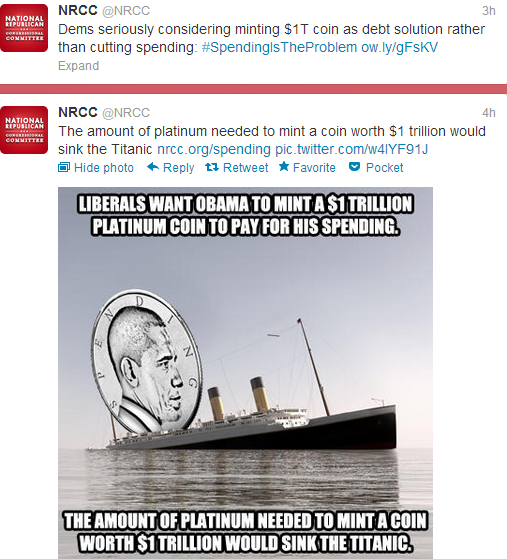Since we're on the topic, just want to make sure I understand the inflationary and other repercussions.
The Coin would effectively be instead of bonds, correct? With bonds, you'd have $1 trillion of bond buying (deflationary; that money's taken from the supply) for $1 trillion plus interest of redemption (inflationary). So, long-term, bonds are inflationary by their interest rate, but they're deflationary short-term.
With The Coin, those bonds don't have to exist, meaning that $1 trillion doesn't leave the money supply (inflationary). But that also means the later interest never gets paid out, because it never existed (deflationary). So there is a deflationary effect overall, but a short-term inflation as money isn't given to the government.
Now, that money staying in the money supply means it can be used on other things. Instead of being shoved into the government, it can be shoved into private business. Mostly by way of investing, stocks, and other various "rich people money-fucking-with", which isn't very helpful, I admit. But even if it just means banks and brokerages hiring more, there would be a multiplier effect. And if that, in aggregate, ends up larger than the interest payments from the bonds, then The Coin would have a stimulative effect. It'd raise GDP. Right? Am I misinterpreting something or is The Coin actually a good idea for non-rich-assholes?



